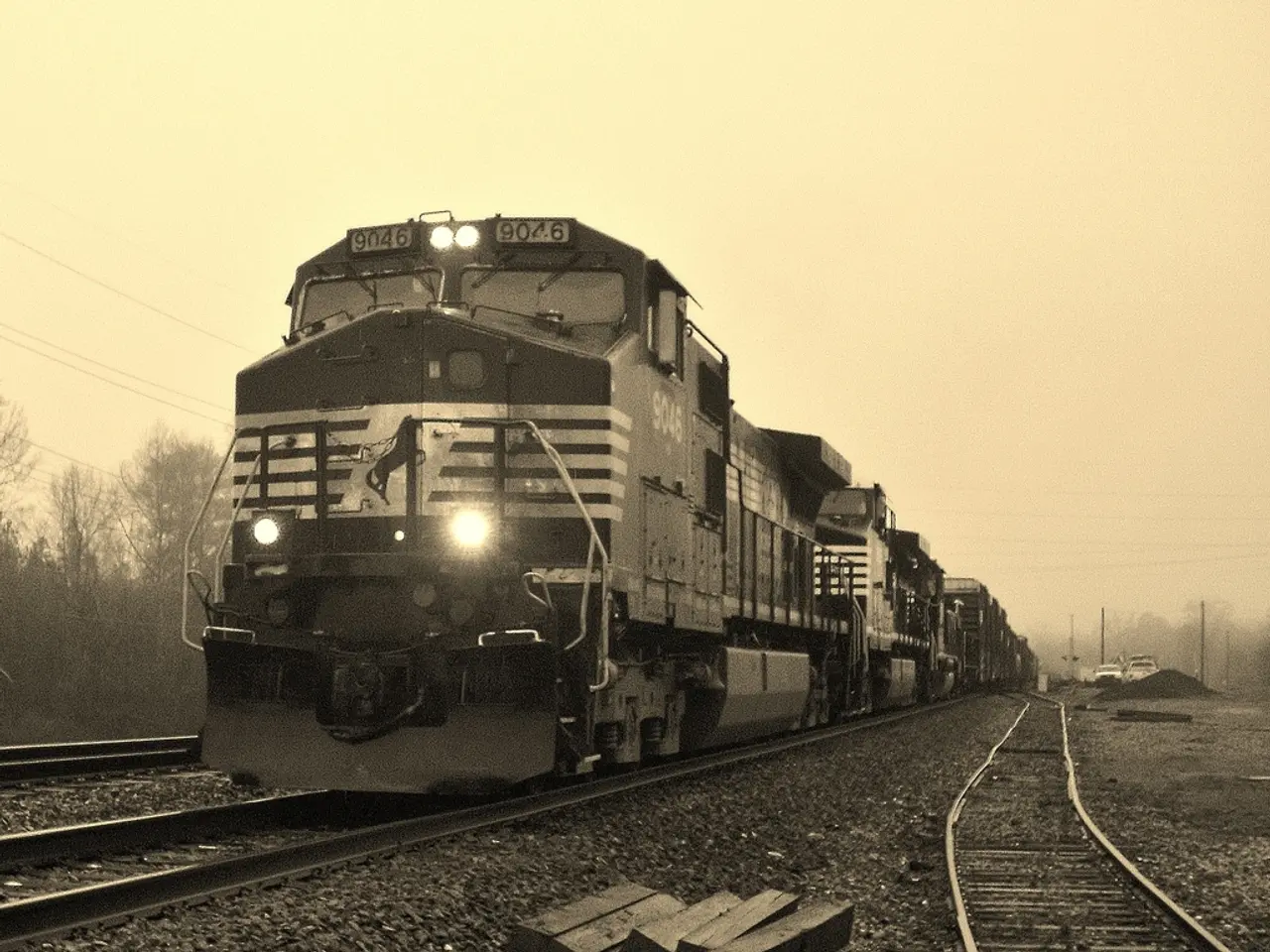Imminent Impact of Tariffs: Significant Decline in Shipments from China Leads to Port Concerns
Rewritten Article:
Are you curious about how the Trump administration's tariffs are affecting the nation's ports? Let's delve into the impact on the Port of Long Beach, as discussed by its CEO, Mario Cordero, with NPR's Ayesha Rascoe.
The 145% tariff on Chinese goods has taken a hefty toll on U.S. ports, with the Port of Long Beach being no exception. These tariffs have resulted in a significant decrease in cargo volumes arriving from China, a crucial market for major West Coast ports. To put it simply, the tariffs have slowed things down like a barrel of cold water thrown on a bonfire.
Port operations are currently dealing with a freight train of delays and drops in container shipments. A quick look at the stats reveals that liner vessels bound for U.S. West Coast ports are carrying only about half the volume compared to last year. The Port of Los Angeles has witnessed a 35% drop in cargo volume year-over-year, which is a reflection of a broader trend affecting ports like Long Beach due to their interconnected operations and shared trade routes.
The decrease in cargo volume can be attributed to Chinese exporters and U.S. importers cutting back on shipments and even canceling orders to dodge the high tariffs. In some ports, exports have nose-dived by a whopping 50%, and the anticipated shipments in the near future appear to be a pipe dream.
The Port of Long Beach, being a key hub for U.S.-China trade, is experiencing any port worker's worst nightmare - slower throughput and lower volumes. This sluggishness is causing ripples through the supply chain and port operations, impacting businesses up and down the line. And folks, guess who's going to bear the brunt of this? You, the consumer. With inventory levels taking a nose dive, it's possible to expect emptier store shelves and higher prices.
To wrap it up, the Trump administration's tariffs have instigated dramatic export declines and import slowdowns at U.S. ports on the West Coast, including the Port of Long Beach, leading to substantial operational and economic effects. These include a steep drop in cargo volumes, cancellations of shipments from China, supply chain disruptions, and potential consequences down the line for consumers in the form of lower product availability and higher prices.
- The tariffs imposed by the Trump administration on Chinese goods have led to a decrease in cargo volumes, particularly in the significant market of major West Coast ports like the Port of Long Beach, thereby causing a slowdown in business operations within the finance, industry, and general-news sectors.
- The sluggish throughput and lower volumes at the Port of Long Beach, due to the reduced cargo volumes resulting from tariffs, have created ripples within the connected businesses and operations in the political and economic landscapes, potentially leading to increased costs and lower product availability for consumers.










